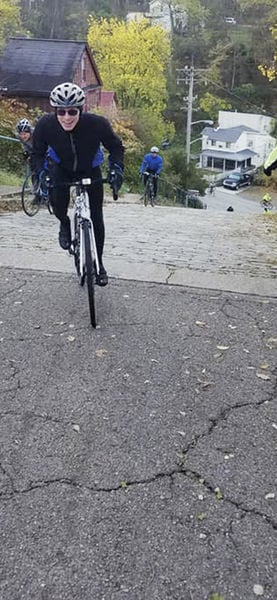It's a "small" museum. But it's the biggest of its kind.
I'll trust the Pittsburgh Gazette's characterization of Bicycle Haven as a "small" museum. I haven't seen it--or Pittsburgh, for that matter--but I'm sure that the Smithsonian, British and Metropolitan Museums and the Louvre--all of which I have seen--dwarf it. Having seen a few other bicycle museums, I don't doubt that it's the largest of its kind.
Now Bicycle Haven is looking for donations. That's nothing new for museums, or any other institutions that don't have major donors or endowments. There is, however, a special urgency to BH's latest appeal for donations: On Christmas Eve, a pipe froze, burst and caused $100,000 in damage.
To some of the big museums, especially those funded by wealthy private donors, that might seem like petty cash. But for BH, it's like losing a few months' salary when the rent is due. It's the creation of Craig Morrow, who built its collection over two decades before opening the museum in 2011. That collection included everything from the extremely rare Bowden Spacelander, the first fiberglass bike (and one of the few ever made), in addition to "boneshakers."
As I understand, Pittsburgh punches well above its weight when it comes to its museums. I certainly would make a point of visiting everything from the Carnegie to BH if I ever find myself in the "Steel City." But there are, I am sure, people who go to Pittsburgh to see Bicycle Haven, or who visit it, but not the other museums, when in Pittsburgh. As a proud New Yorker, I give all due respect--which is often ample--to cities like Pittsburgh for having museums like Bicycle Haven that would be considered "niche" or "cult" in other cities or by people who are not generally interested in the museum's focus.
My love of cycling is not the only reason, however, why I would visit Bicycle Haven. I guess that even though I'm in, ahem, in the middle of my life, I am as much a sucker as any Millenial for the story behind something--at least, in the case of an institution like Bicycle Haven. It is, after all, a reminder of how most museums, "major" or niche, begin: with the collection of someone with a passion for whatever ends up in the display cases, or on the pedestals, that line said museum's corridors.


